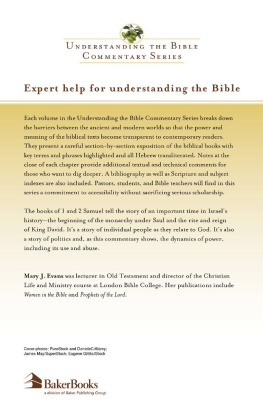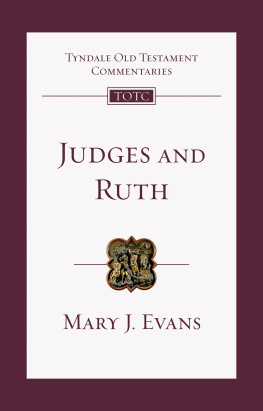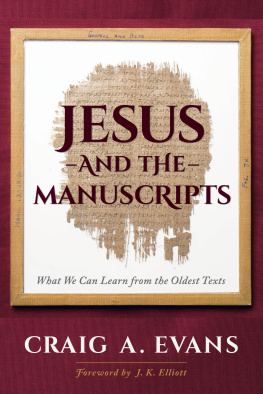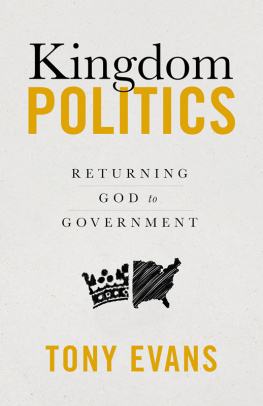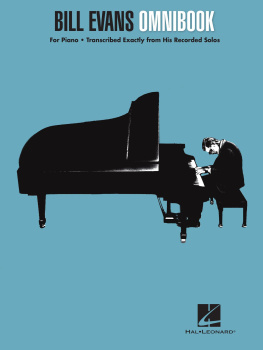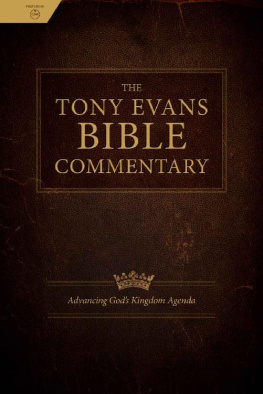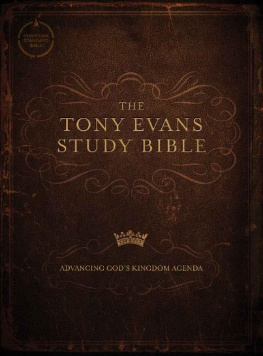
G ENERAL E DITORS
W. Ward Gasque
Robert L. Hubbard Jr.
Robert K. Johnston
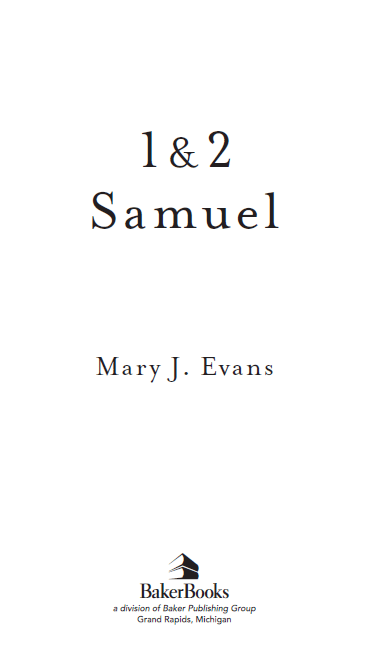
2000 by Mary J. Evans
Published by Baker Books
a division of Baker Publishing Group
P.O. Box 6287, Grand Rapids, MI 49516-6287
www.bakerbooks.com
Previously published jointly in 2000, in the United States by Hendrickson Publishers, and in the United Kingdom by the Paternoster Press.
Baker Books edition published 2012
ISBN 978-1-4412-3831-3
Ebook edition created 2012
All rights reserved. No part of this publication may be reproduced, stored in a retrieval system, or transmitted in any form or by any meansfor example, electronic, photocopy, recordingwithout the prior written permission of the publisher. The only exception is brief quotations in printed reviews.
Library of Congress Cataloging-in-Publication Data is on file at the Library of Congress, Washington, DC.
Scripture quotations are from the Holy Bible, New International Version. NIV. Copyright 1973, 1978, 1984 by Biblica, Inc. Used by permission of Zondervan. All rights reserved worldwide. www.zondervan.com
For Ashley and Margaret, Joy and Robert, representing many other fellow church members from Sale and Croxley Green who have over many years provided support, encouragement, love, and tolerance.
Table of Contents
Foreword
As an ancient document, the Old Testament often seems something quite foreign to modern men and women. Opening its pages may feel, to the modern reader, like traversing a kind of literary time warp into a whole other world. In that world sisters and brothers marry, long hair mysteriously makes men superhuman, and temple altars daily smell of savory burning flesh and sweet incense. There, desert bushes burn but leave no ashes, water gushes from rocks, and cities fall because people march around them. A different world, indeed!
Even God, the Old Testaments main character, seems a stranger compared to his more familiar New Testament counterpart. Sometimes the divine is portrayed as a loving father and faithful friend, someone who rescues people from their greatest dangers or generously rewards them for heroic deeds. At other times, however, God resembles more a cruel despot, one furious at human failures, raving against enemies, and bloodthirsty for revenge. Thus, skittish about the Old Testaments diverse portrayal of God, some readers carefully select which portions of the text to study, or they avoid the Old Testament altogether.
The purpose of this commentary series is to help readers navigate this strange and sometimes forbidding literary and spiritual terrain. Its goal is to break down the barriers between the ancient and modern worlds so that the power and meaning of these biblical texts become transparent to contemporary readers. How is this to be done? And what sets this series apart from others currently on the market?
This commentary series will bypass several popular approaches to biblical interpretation. It will not follow a precritical approach that interprets the text without reference to recent scholarly conversations. Such a commentary contents itself with offering little more than a paraphrase of the text with occasional supplements from archaeology, word studies, and classical theology. It mistakenly believes that there have been few insights into the Bible since Calvin or Luther. Nor will this series pursue an anticritical approach whose preoccupation is to defend the Bible against its detractors, especially scholarly ones. Such a commentary has little space left to move beyond showing why the Bibles critics are wrong to explaining what the biblical text means. The result is a paucity of vibrant biblical theology. Again, this series finds inadequate a critical approach that seeks to understand the text apart from belief in the meaning it conveys. Though modern readers have been taught to be discerning, they do not want to live in the desert of criticism either.
Instead, as its editors, we have sought to align this series with what has been labeled believing criticism . This approach marries probing, reflective interpretation of the text to loyal biblical devotion and warm Christian affection. Our contributors tackle the task of interpretation using the full range of critical methodologies and practices. Yet they do so as people of faith who hold the text in the highest regard. The commentators in this series use criticism to bring the message of the biblical texts vividly to life so the minds of modern readers may be illumined and their faith deepened.
The authors in this series combine a firm commitment to modern scholarship with a similar commitment to the Bibles full authority for Christians. They bring to the task the highest technical skills, warm theological commitment, and rich insight from their various communities. In so doing, they hope to enrich the life of the academy as well as the life of the church.
Part of the richness of this commentary series derives from its authors breadth of experience and ecclesial background. As editors, we have consciously brought together a diverse group of scholars in terms of age, gender, denominational affiliation, and race. We make no claim that they represent the full expression of the people of God, but they do bring fresh, broad perspectives to the interpretive task. But though this series has sought out diversity among its contributors, they also reflect a commitment to a common center. These commentators write as believing criticsscholars who desire to speak for church and academy, for academy and church. As editors, we offer this series in devotion to God and for the enrichment of Gods people.
R OBERT L. H UBBARD J R .
R OBERT K. J OHNSTON
Editors
Preface
The opportunity to share in a commentary series that takes seriously both the complexities of the text and the interests of the reader is a rare privilege and one that I have greatly appreciated. Immersing oneself in the books of Samuel inevitably means facing the challenge to ones own life and faith that arises from the incisive and uncompromising observations of people and events with which the books confront us. That challenge is not always an easy one to face. The sharp light that illuminates the struggles, failures, and personality defects of the characters as well as their strengths and achievements shines also onto our own faces. Reading Samuel (and writing about it) brings fascination and frustration, fear, anger, and despair, joy, laughter, and determination as different elements come into focus within the stories the text presents. My hope is that this commentary will help readers appreciate and respond to the dynamism and the challenge of these texts. The focus is usually on the characters, but the backdrop is the involvement of God in his world and with his people. Gods activity is not always immediately perceived, understood, or appreciated by the characters described, but the writers convey a conviction that it is there. The fact of Gods involvement brings hope both to these characters and to readers of the text.
The additional notes and the further reading lists only partially indicate the great debt I owe to many, many scholars. In general, only those who have been specifically referred to or cited are listed, but I am grateful to all those whose work I have read, appreciated, and benefited from even when their names do not appear within this work.
I would also like to take this opportunity to express my debt and my gratitude to my students, who over many years have provided stimulation and often brought or provoked new insights; to London Bible College, for the provision of the sabbatical leave within which the bulk of this commentary was written and for the ongoing support and stimulation provided by my colleagues; to Sylvia, Gavin, and Kitty Collinson, for providing a congenial place to write; to Doug Flint, Edna Sansom, and Richard Judd for their help in preparing the manuscript; and finally to my friends, my family, and my church family, to some of whom this book is dedicated, because they are part of the backdrop of Gods involvement in my own life.
Next page
